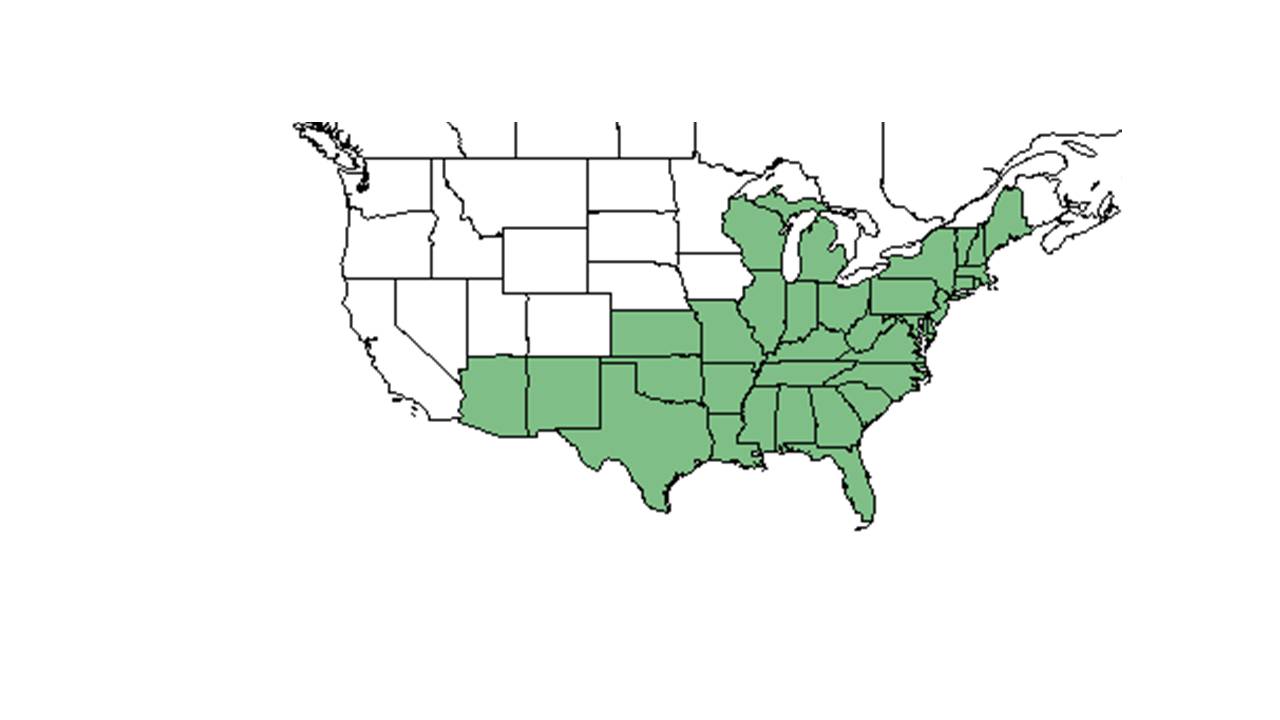Difference between revisions of "Chamaecrista nictitans"
| Line 21: | Line 21: | ||
==Distribution== | ==Distribution== | ||
==Ecology== | ==Ecology== | ||
| + | It is a legume. By mid-season in June and July, a maximum nitrogen-fixing rate was observed.<ref name="Cathey et al 2010"/> | ||
===Habitat=== <!--Natural communities, human disturbed habitats, topography, hydrology, soils, light, fire regime requirements for removal of competition, etc.--> | ===Habitat=== <!--Natural communities, human disturbed habitats, topography, hydrology, soils, light, fire regime requirements for removal of competition, etc.--> | ||
| + | It is tolerant of overstory canopies that decrease the light level to about half the ambient (i.e., it can live in partially shaded areas and its nitrogen-fixing capability won't be significantly affected).<ref name="Cathey et al 2010">Cathey, S. E., L. R. Boring, et al. (2010). "Assessment of N2 fixation capability of native legumes from the longleaf pine-wiregrass ecosystem." Environmental and Experimental Botany 67: 444-450.</ref> It is found in longleaf pine-wiregrass.<ref name="Cathey et al 2010"/> | ||
===Phenology=== <!--Timing off flowering, fruiting, seed dispersal, and environmental triggers. Cite PanFlora website if appropriate: http://www.gilnelson.com/PanFlora/ --> | ===Phenology=== <!--Timing off flowering, fruiting, seed dispersal, and environmental triggers. Cite PanFlora website if appropriate: http://www.gilnelson.com/PanFlora/ --> | ||
===Seed dispersal=== | ===Seed dispersal=== | ||
Revision as of 15:08, 10 June 2015
| Chamaecrista nictitans | |
|---|---|
Error creating thumbnail: Unable to save thumbnail to destination
| |
| Scientific classification | |
| Kingdom: | Plantae |
| Division: | Magnoliophyta - Flowering plants |
| Class: | Magnoliopsida – Dicotyledons |
| Order: | Fabales |
| Family: | Fabaceae ⁄ Leguminosae |
| Genus: | Chamaecrista |
| Species: | C. nictitans |
| Binomial name | |
| Chamaecrista nictitans (L.) Moench | |

| |
| Natural range of Chamaecrista nictitans from USDA NRCS Plants Database. | |
Contents
Description
Distribution
Ecology
It is a legume. By mid-season in June and July, a maximum nitrogen-fixing rate was observed.[1]
Habitat
It is tolerant of overstory canopies that decrease the light level to about half the ambient (i.e., it can live in partially shaded areas and its nitrogen-fixing capability won't be significantly affected).[1] It is found in longleaf pine-wiregrass.[1]
Phenology
Seed dispersal
Seed bank and germination
Fire ecology
Pollination
Use by animals
A bee, Augochloropsis anonyma (Cockerell) was found on C. nictitans.[2]
Diseases and parasites
Conservation and Management
Cultivation and restoration
Photo Gallery
References and notes
- ↑ 1.0 1.1 1.2 Cathey, S. E., L. R. Boring, et al. (2010). "Assessment of N2 fixation capability of native legumes from the longleaf pine-wiregrass ecosystem." Environmental and Experimental Botany 67: 444-450.
- ↑ Deyrup, M. J. E., and Beth Norden (2002). "The diversity and floral hosts of bees at the Archbold Biological Station, Florida (Hymenoptera: Apoidea)." Insecta mundi 16(1-3).